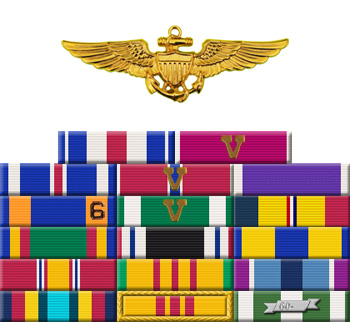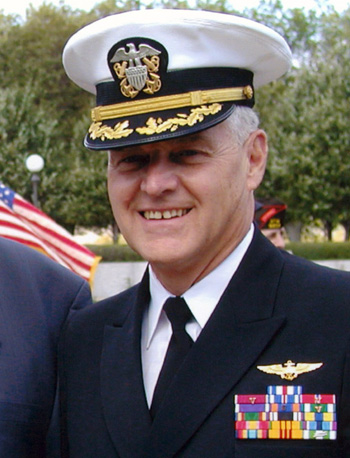
|
David R. Wheat |
 |
|||
| Rank, Service | ||||
Commander O-5, U.S. Navy |
||||
| Veteran of: | ||||
|
||||
| Tribute: | ||||
David Wheat was born in 1939 in Dearborn, Michigan. He graduated from the University of Minnesota in 1963, and entered the Naval Aviation Officer Candidate program on October 2, 1963. After receiving his commission as an Ensign on February 14, 1964, Wheat began training for the Naval Flight Officer program. He received his Naval Flight Officer Wings in April 1965. Ensign Wheat then joined Fighter Squadron 41 at NAS Oceana, Virginia, flying the F-4B Phantom II. Wheat soon began flying combat missions in Southeast Asia, and on his 80th combat mission of the war, he and his pilot were forced to eject over North Vietnam on October 17, 1965. After spending 2,675 days in captivity, he was released during Operation Homecoming on February 12, 1973. After his release, LCDR Wheat entered pilot training and earned his Naval Aviator Wings in May 1975. In July 1975 he was assigned to NAS Whidbey Island, Washington, flying the A-6 Intruder. He then flew the C-9 Skytrain II and T-39 Sabreliner at NAS Alameda, California, and NAS North Island, California. Next he served as the Training Officer on board USS Ranger, deploying to the Indian Ocean during the Iranian hostage crisis. Commander Wheat's final tour was as Officer in Charge of the F-14/E-2 flight simulator facility at NAS Miramar, California. He retired from the Navy on December 31, 1984. Commander Wheat has over 2,400 flying hours total between being a Naval Flight Officer and Naval Aviator. David Wheat is married to the former Ginger Sauer of Duluth, Minnesota, and they have three children; Erin, Dan, and Elizabeth. |
||||
|
||||

